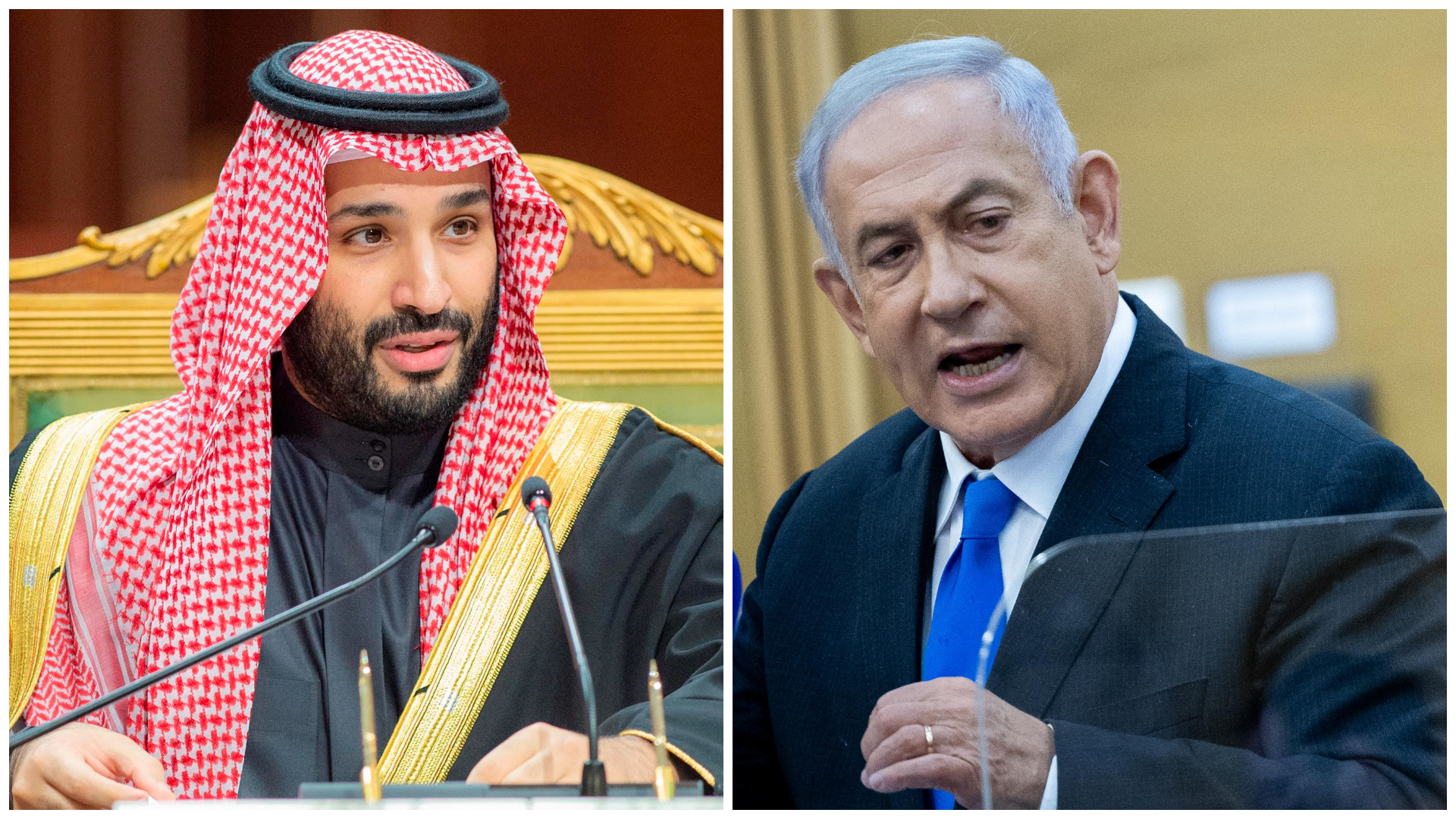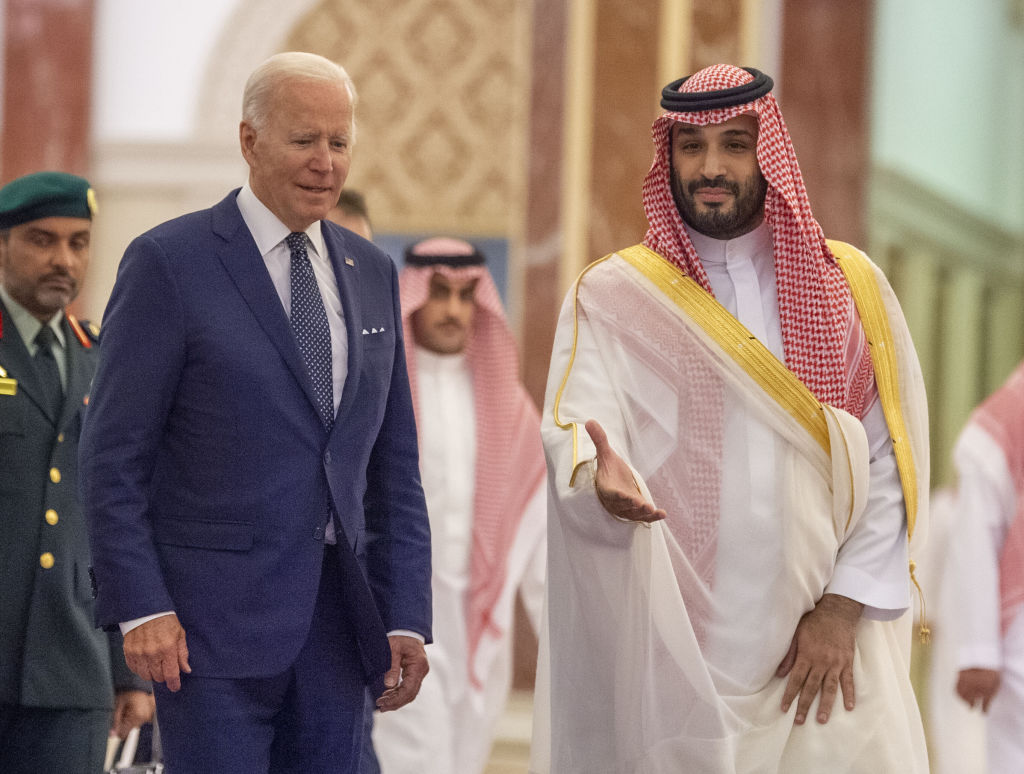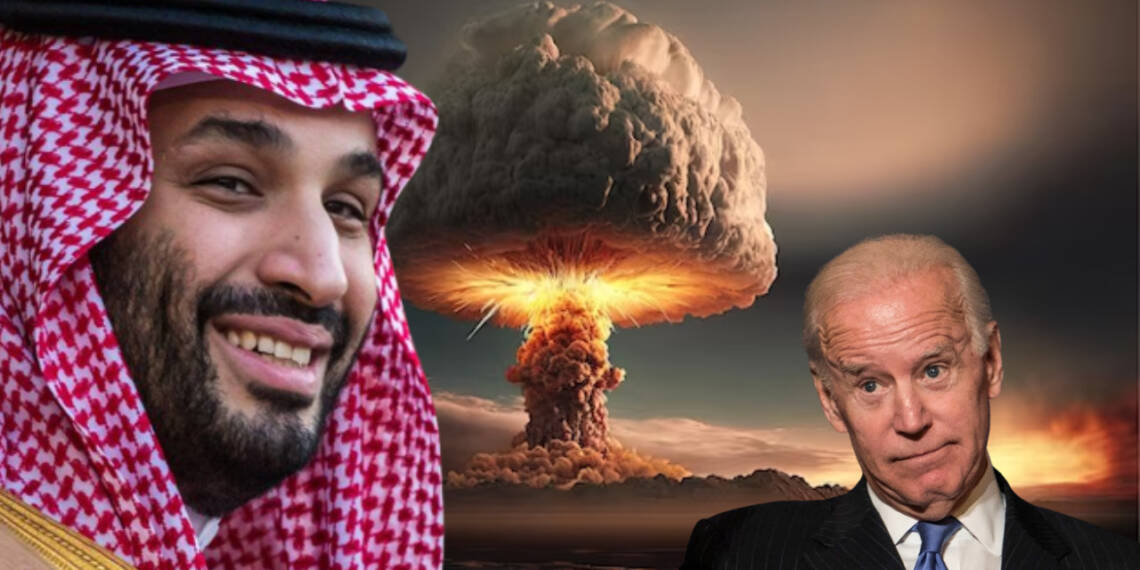In a recent interview with Fox News, Saudi Arabia’s Crown Prince Mohammed bin Salman, commonly known as MBS, issued a warning to the United States. He stated unequivocally that if Iran were to obtain a nuclear weapon, Saudi Arabia would follow suit. This statement of MBS reflects the growing concerns and regional tensions surrounding Iran’s nuclear ambitions.
Furthermore, it’s worth mentioning that diplomatic relations between Saudi Arabia and Iran have shown signs of improvement since March, following an agreement brokered by China. Yet, MBS has emphasized that just like Tehran, Riyadh needs a nuclear weapon too.
Not only this, Saudi Arabia has recently made the decision to halt normalization talks with Israel. This move comes in the context of a broader development where Saudi Arabia has conveyed its decision to the Biden administration to suspend these talks. The key factor influencing this decision is the prominence of the “Palestine issue.”
Normalization No More: Saudi Halts Israeli Proposal
Riyadh has conveyed through the United States that it perceives the right-wing government in Israel, led by Prime Minister Benjamin Netanyahu, as “extremist.” This characterization is seen as a barrier to any potential improvement in relations with the Palestinians, thus impacting Saudi-Israeli ties.
Furthermore, Saudi Arabia is concerned about the Israeli government’s willingness to accommodate individuals like National Security Minister Itamar Ben-Gvir and Finance Minister Bezalel Smotrich, who are viewed by the Saudis as part of the “far-right” political spectrum.
These individuals advocate for a complete takeover of Palestine, which further discourages Saudi Arabia from pursuing a potential peace agreement with Israel.

In a span of just one week, Saudi Arabia’s Crown Prince Mohammed bin Salman (MBS) has made two significant declarations that shed light on his current intentions. First, he has expressed a strong desire for a nuclear deal, emphasizing his commitment to obtaining nuclear capabilities. Second, he has indicated that normalization with Israel is not currently on the table.
What’s striking is Saudi Arabia’s abrupt shift in its stance toward Israel. Despite recent positive developments in their relations, Saudi Arabia has suddenly voiced discontent. This shift can be attributed to Saudi Arabia’s urgent need to diversify its economy away from reliance on oil and gas.
They view normalization with Israel as a means to achieve this goal, with the potential for Israeli tourism and investment to play a pivotal role.
Read More: MBS’ STFU to Biden that actually shut Biden up for good
A Shift in Stance: What is MBS Upto?
While Saudi Arabia has covertly engaged with Tel Aviv for years, the sudden halt in normalization talks has put a significant strain on President Biden’s efforts to advance his key project in West Asia.
The prospect of normalization with Riyadh holds immense potential for both Israel and U.S. President Joe Biden, in particular, seeking a political boost in the face of waning popularity and potential challenges in the 2024 elections.
A new Abraham Accord with Saudi Arabia could be a game-changer for his administration. Crown Prince Mohammed bin Salman (MBS) is aware of this, which explains the delay in the process, recognizing the leverage it provides in negotiations.
Crown Prince Mohammed bin Salman (MBS) is pursuing a calculated strategy by stalling peace talks and exerting pressure on the United States. He recognizes the tendency of U.S. administrations to seek diplomatic achievements in the lead-up to elections, and he aims to leverage this dynamic.
MBS Demands: Make Saudi Secure and Nuclear
MBS’s demands for a potential deal with the U.S. include two critical components: a security arrangement akin to a NATO agreement and a civil nuclear deal. The latter is especially contentious, as it raises concerns about nuclear proliferation in the Middle East. Granting Saudi Arabia full uranium enrichment capabilities could potentially lead to concerns about the development of nuclear weapons.
Yair Lapid, Israel’s former PM, has expressed opposition to an Israel-Saudi Arabia deal that would allow Riyadh to enrich uranium, primarily due to security apprehensions. As per several Western experts, even nuclear reactors in the Middle East could be vulnerable to aerial attacks by adversaries such as the Houthis or Iran.

Interestingly, MBS has floated the idea of a nuclear agreement with China, although he acknowledges that such a deal lacks the security guarantees that would come with a deal involving the U.S.
Saudi Arabia’s decision to participate in the U.S.-backed India Middle East Europe Corridor (IMEC) project appears to be a goodwill gesture toward Washington, aiming to strengthen bilateral ties.
Moreover, Saudi Arabia has signaled its readiness to cooperate with the U.S. in addressing challenges posed by China. In return, they anticipate securing the deal they desire. This underscores MBS’s strategic maneuvering to achieve its objectives by taming America.
Read More: A BRICSy Middle East! Raisi and MBS join forces leaving Biden out of equation
The central question remains: Will President Joe Biden agree to MBS’s proposed deal? MBS has effectively exerted significant leverage over Biden’s administration, putting it in a challenging position. So yes, it appears Saudi might get a deal with Nuclear advantage very soon.
Watch More:








